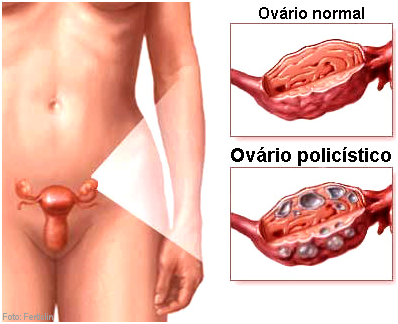Have you ever heard of polycystic ovary syndrome? This is a condition that many women suffer from and in some cases it causes pain, the main consequence being the difficulty for a woman to become pregnant naturally. To introduce this topic, it is important to remember that women have two ovaries, one on each side of the uterus. They are responsible for ovulation and for the release of hormones during the menstrual and ovulatory cycles. In a normal cycle, women experience hormonal changes during the egg maturation period, causing the endometrium to thicken and the follicle to release the egg. But when a woman has PCOS (polycystic ovary syndrome), this does not happen easily.
Polycystic ovary syndrome can get in your way if you are trying to conceive.
What Are Polycystic Ovaries
Polycystic ovary syndrome is nothing more than tiny cysts located in one or even both ovaries, leading to malfunction of ovulation and, also, of hormone production, resulting in excess or deficiency of hormones. Women with polycystic ovary syndrome may have thicker ovarian walls than usual, which makes it harder for the follicle to rupture and release the egg, causing them to remain inside the ovary1.
Symptoms of Polycystic Ovaries
The symptoms are quite varied. According to doctors, those with PCOS (polycystic ovary syndrome) often have a lot of acne as well as very long menstrual periods2. A woman with PCOS may menstruate only 4 times a year, for example. This happens because hormones are altered due to the syndrome, making it difficult to predict if or when ovulation will occur. Another inconvenient symptom is increased and thickened hair growth, as well as weight gain, which can result in obesity.
Treatments for Polycystic Ovary Syndrome
For a woman with polycystic ovary syndrome to become pregnant, treatment involves inducing ovulation through specific medications or drugs that help clear the cysts from the ovaries3. In some cases, Clomid is prescribed and also metformin, which helps eliminate the follicles and normalize hormones. It is also important to adopt a healthier diet and an exercise routine to help with the process.
To prevent PCOS from becoming severe and causing infertility, it is important for mothers to take their daughters for evaluation as soon as the first menstruation appears as a preventive measure. The vast majority of women who undergo treatment to control this condition end up getting pregnant naturally or through more intensive means such as IUI (intrauterine insemination) or IVF. The key is to never give up! Good luck!
See also: Metformin For Polycystic Ovaries – Consult Your Doctor












